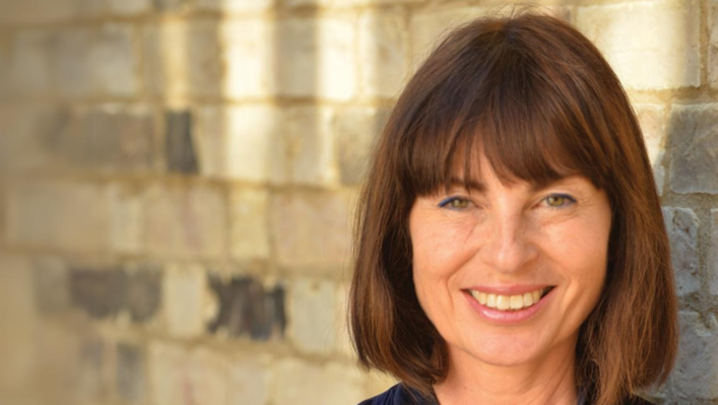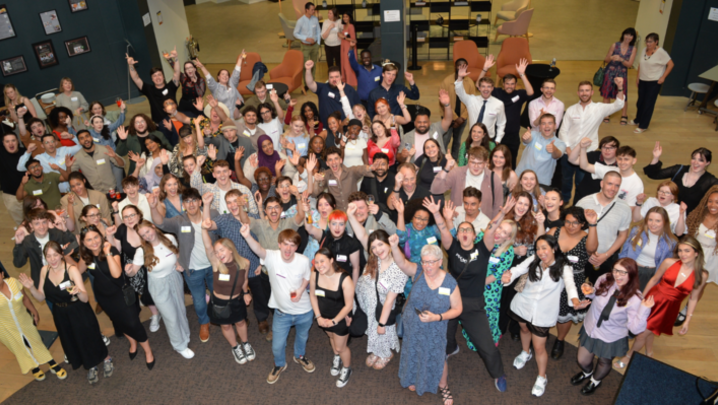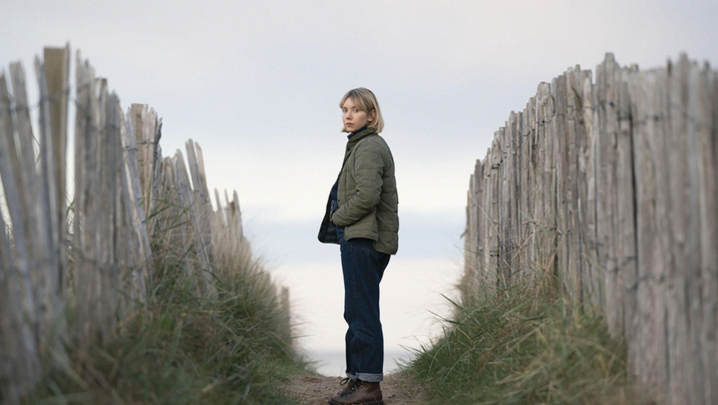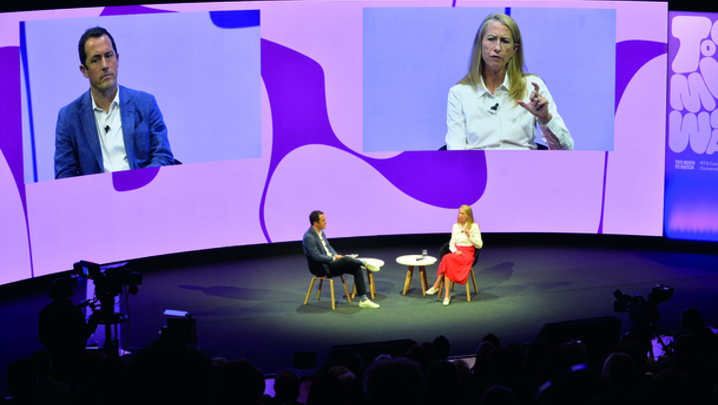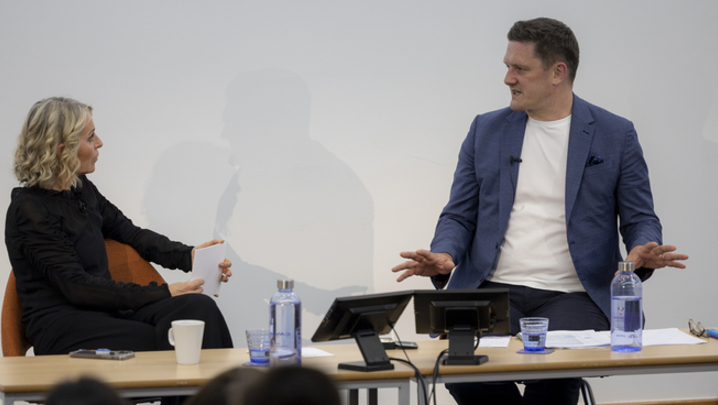Tim Dams talks to the high-profile founders of the production company responsible for the acclaimed drama Patrick Melrose
One of the standout drama launches of the year is unquestionably Sky Atlantic’s Patrick Melrose. The five-parter memorably opens in London with a heroin-addled Melrose, played magisterially by Benedict Cumberbatch, receiving news of his abusive father’s death in New York. Melrose then travels there to bring home his father’s ashes. While in Manhattan, he embarks on an epic drugs binge. Expect the erstwhile Sherlock star to win multiple awards for this astonishing performance.
Heroin aside, Patrick Melrose’s opening scenes neatly reflect the transatlantic nature of Two Cities, the production company behind the serial.
Two Cities is run by two of the best-known executives in British TV – the former BBC One and BBC Two controller, Channel 4 boss and Chair of Universal Television Michael Jackson (who now lives in New York), and Wall to Wall founder and ex-CEO Alex Graham.
The pair have known one another for a long time. Jackson hired Graham in the late 1980s as a consultant on his seminal Channel 4 series The Media Show. They have been in regular contact ever since.
In 2014, Jackson approached Graham about working together, soon after Graham had left his Who Do You Think You Are? and New Tricks indie following its 2010 sale to Warner Bros.
Jackson’s proposition was simple: they should set up a drama-focused production company. “Alex had been in drama quite successfully at Wall to Wall. These things are better with two heads rather than one,” he says.
Jackson wanted to concentrate on drama because it was something new to him as a producer, and also because “drama feels like the richest and most interesting part of television at the moment”.
He cites the “explosion” of streaming services, such as Netflix, Amazon and Hulu, which has opened up new categories of business for producers. Shows can be successful with much smaller audiences, which means that companies like his can win a rich and diverse range of commissions. Meanwhile, increasingly sophisticated audience measurement systems suggest that broadcasters understand how valuable niche shows can be to them.
Initially, Graham wavered. He’d just come out of 25 years at Wall to Wall. “My first reaction was: ‘I’m not sure. I need a year to decompress.’”
“Because I am in New York and Alex and the team are here, we very much want to work out of both the UK and the US”
But, 12 months later, the idea of working together still resonated. “Instinctively, I agreed with Michael,” says Graham. “We are in a golden age of risk-taking. It is competitive, but there are more opportunities to do interesting work than at any time I can remember.”
Patrick Melrose is Two Cities’ first production to air. It is very much Jackson’s project and, clearly, the show has been a time-consuming job to assemble. Originally developed by Channel 4, it was finally co-produced by Sky Atlantic and Showtime.
Talking in Two Cities’ Somerset House office in London, Jackson and Graham make it clear that Patrick Melrose is just the beginning of a journey for Two Cities. Backed by BBC Worldwide, which has a 25% stake, the indie last year hired BBC Northern Ireland drama head Stephen Wright (Line of Duty, The Fall) as creative director to help build a slate along with development executive Janet Tyler.
Two Cities now has half a dozen projects in script development with traditional broadcasters and streamers, and a similar number in unpaid development. The projects range from “boutique” dramas, such as Patrick Melrose, to “good, popular and long-running television series and serials”.
Jackson stresses the transatlantic nature of the company: “Because I am in New York and Alex and the team are here, we very much want to work out of both the UK and the US.”
But that doesn’t mean producing bland, mid-Atlantic drama – the reputation in the past for most international co-productions. Graham says the emergence of “niche-global” programming – bold and innovative shows possessing a real clarity of purpose – has swept away old preconceptions of co-produced drama.
He cites Patrick Melrose as an example: “It is Brideshead Revisited meets Trainspotting. It is not an easy watch and is the antithesis of what we used to talk about as mid-Atlantic fare.”
One of Two Cities’ upcoming projects is certain to create huge waves on both sides of the Atlantic when it is shown. Jackson is executive producing Fire and Fury, based on Michael Wolff’s controversial book examining the first year of Donald Trump’s presidency.
Jackson knows Wolff well. Nine months ago, he helped to sell the project to Amazon Studios – only for it to be dropped following a management overhaul at the online giant. “The new management were very afraid of it. Maybe not afraid, but they didn’t know what to do with it,” says the one-time Channel 4 CEO.
Shortly afterwards, Endeavor Content “wrote a cheque for $1m” for the TV and film rights, with Two Cities attached as producer. In an inspired appointment for a drama depicting Donald Trump, Jay Roach (Game Change, Austin Powers) has been named as director; a writer is still in the process of being hired.
The Endeavor deal neatly illustrates both the opportunities and the challenges facing smaller producers such as Two Cities operating in an increasingly global and consolidated industry. It is getting harder to hold on to IP.
Jackson says that top talent is “being sucked into the orbit of the streamers,” citing Netflix’s The Crown as an example.
“One of the things that we have learned quite quickly is that we have to be smarter in the range of deals that we do. We have to be cleverer about packaging deals,” says Graham. “Fire and Fury is a good example of that. Michael’s relationship with the other Michael positioned us.
“But we couldn’t afford to take that book off the market. When Endeavor turned up, and was willing to write a cheque, we had to go along with that. But, because we built relationships and commitments, we were able to partner with Endeavor.”
Graham says that Two Cities probably won’t end up with any ownership of the project. “But we will be creatively involved and will, hopefully, be well paid for our involvement. You have to be more flexible and fleet of foot now.”
That said, Graham believes that the industry offers a much better environment for independent producers than when he launched Wall to Wall. He notes that, back then, there was just one buyer for ideas – Channel 4.
Competition among a legion of new drama indies may be tough, but so, too, is it among broadcasters and streamers. Jackson says that top talent is “being sucked into the orbit of the streamers,” citing Netflix’s The Crown as an example.
But he doesn’t seem convinced by the argument, advanced by BBC Director-General Tony Hall, that the UK broadcasting industry is in danger of being taken over by US tech firms.
“There is always material [that the streamers] will find hard to get, such as Happy Valley or Ackley Bridge or Line of Duty… I think that British buyers still have quite a lot of commissioning power. And they should do, as they are closer to the ground. They will probably have to be faster, and will have to take more risks with younger, less established talent.”
Given their background, one would have thought that two well-connected and experienced executives such as Jackson and Graham would be among the first in line to pick up commissions of this type.
Their track record is helpful, acknowledges Jackson: “It might get you in the room or get your email answered. But you still have to have a good project.”


